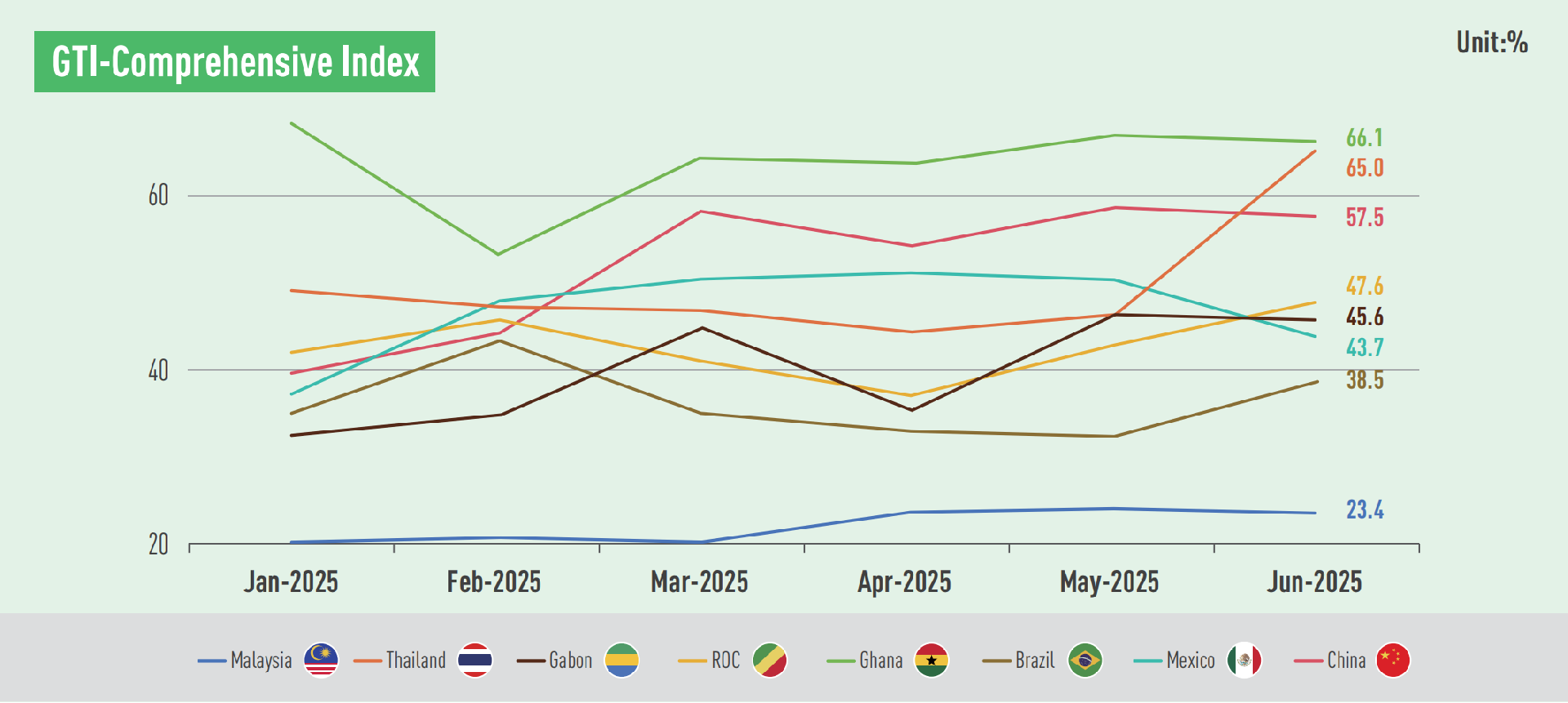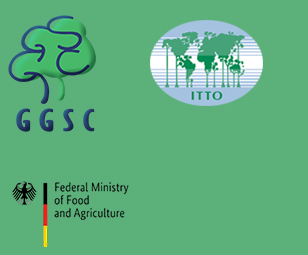

The Global Timber Index (GTI) Report for June 2025 revealed a slight upward trend in the overall performance of the global timber market this month. The GTI readings for Ghana (66.1%), Thailand (65.0%), and China (57.5%) exceeded the 50% critical value, indicating overall improvements in their timber sectors. Among the winners, Ghana remained in the positive territory for the sixth consecutive month, China stayed in the territory for the fourth month, while Thailand returned to growth after five months of contraction. The GTIs for the Republic of the Congo (47.6%), Gabon (45.6%), Mexico (43.7%), Brazil (38.5%), and Malaysia (23.4%) remained in contraction territory. However, both Brazil and the Congo saw an easing of the downward trends.
Positive signs were also evident in the sub-indices of some countries. For example, harvesting volume rose in both Gabon and the Congo; production volume in Thailand increased significantly; on the demand side, Mexico’s domestic market improved, while China and Ghana continued to see growth in their export markets.
This month, GTI sample enterprises highlighted challenges in market demand, costs & prices, trade barriers, etc. For instance, Chinese businesses reported intense price competition and suggested regulating practices in the industry; Ghanaian enterprises expressed concerns over rising electricity costs, while the Gabonese counterparts noted that SETRAG, the railway operator, raised the transportation price for logs; and in Latin America, firms in both Brazil and Mexico highlighted issues related to international trade barriers or tariffs.
In the field of sustainable forest management, on 3 June, Brazilian President Lula announced the allocation of R$825.7 million from the Amazon Fund (Fundo Amazônia) to the Brazilian Institute for the Environment and Renewable Natural Resources (IBAMA), aiming to reinforce environmental monitoring to combat deforestation in the Amazon region. GTI pilot countries are also exploring technological solutions to support sustainable forest management. For example, in Malaysia, the Enforcement Agency Integrity Commission, the Forestry Department of Peninsular Malaysia, and the Malaysian Space Agency have been committed to expanding the use of satellite and remote sensing technology for forest monitoring, and through the Forest Monitoring Remote Sensing Systems (FMRS Plus), the Forestry Department detected approximately 250 cases of encroachment last year and arrested the offenders. In Ghana, the Minister of Environment, Science, Technology and Innovation revealed that the government plans to use Artificial Intelligence (AI) to monitor and manage Ghana’s forest areas in real time to help stop illegal mining activities.

| E-mail:ggsc@itto-ggsc.org | Tel:86-10-62888626 |


Sigh Up for Emails |
|